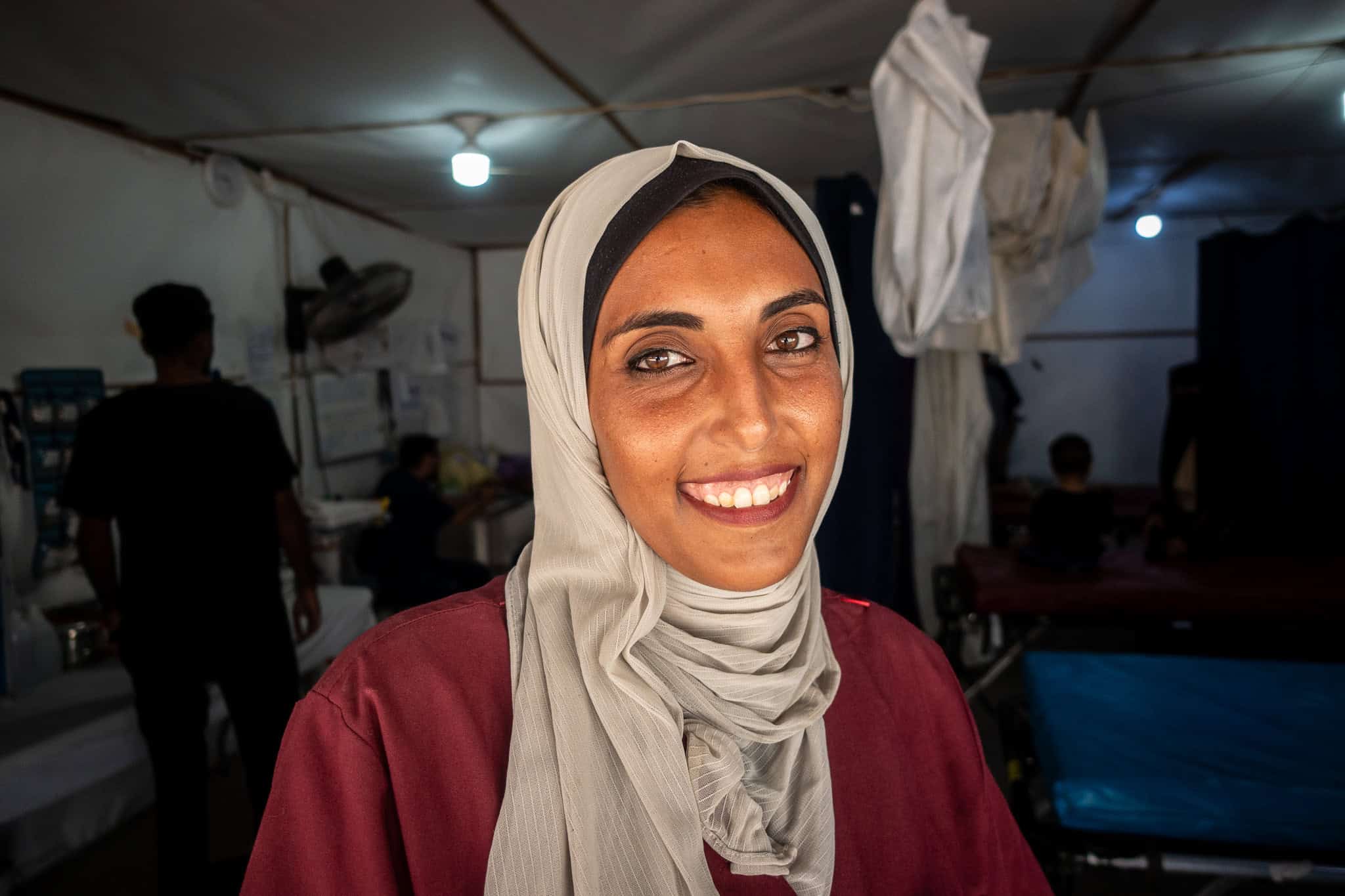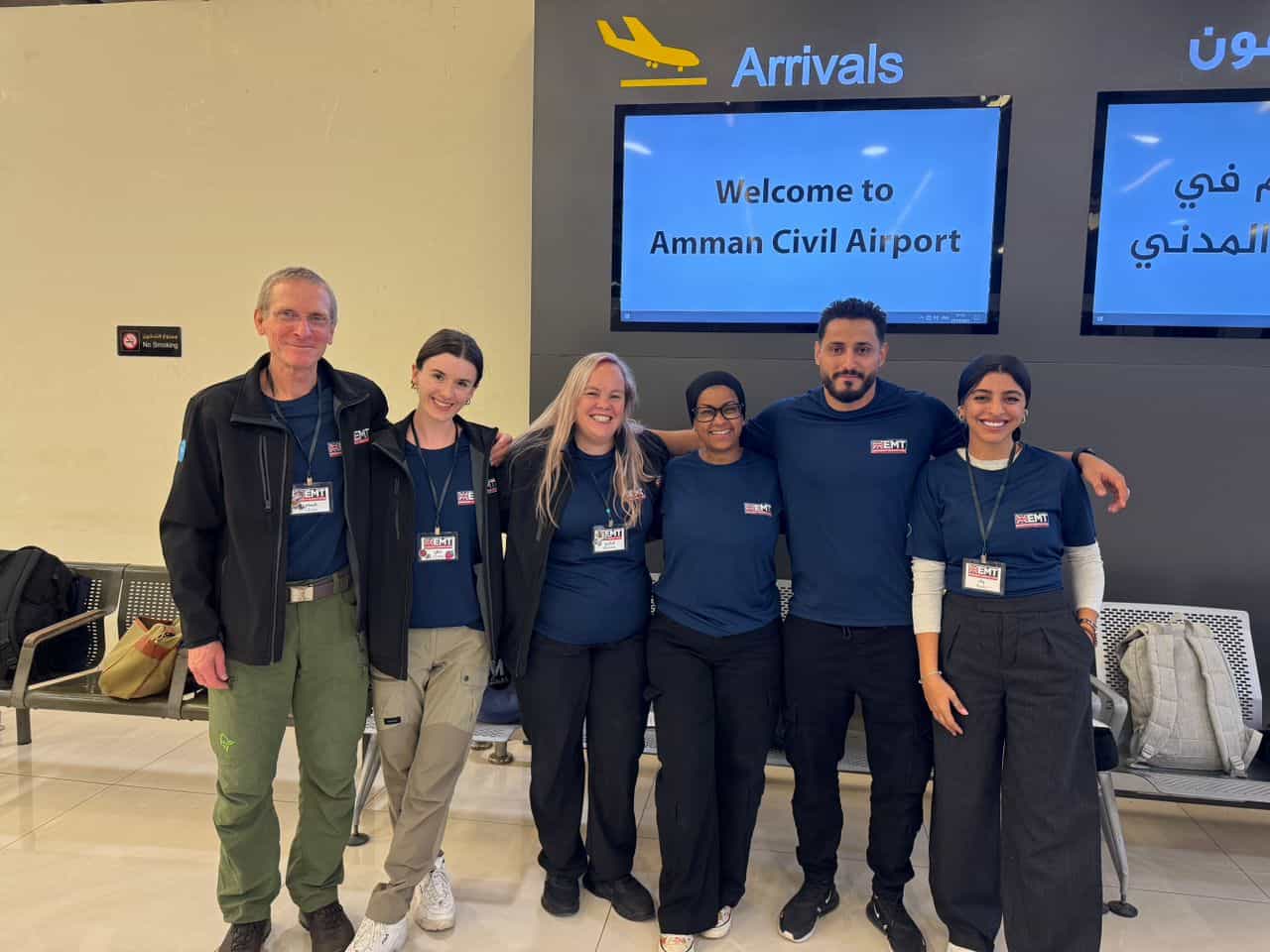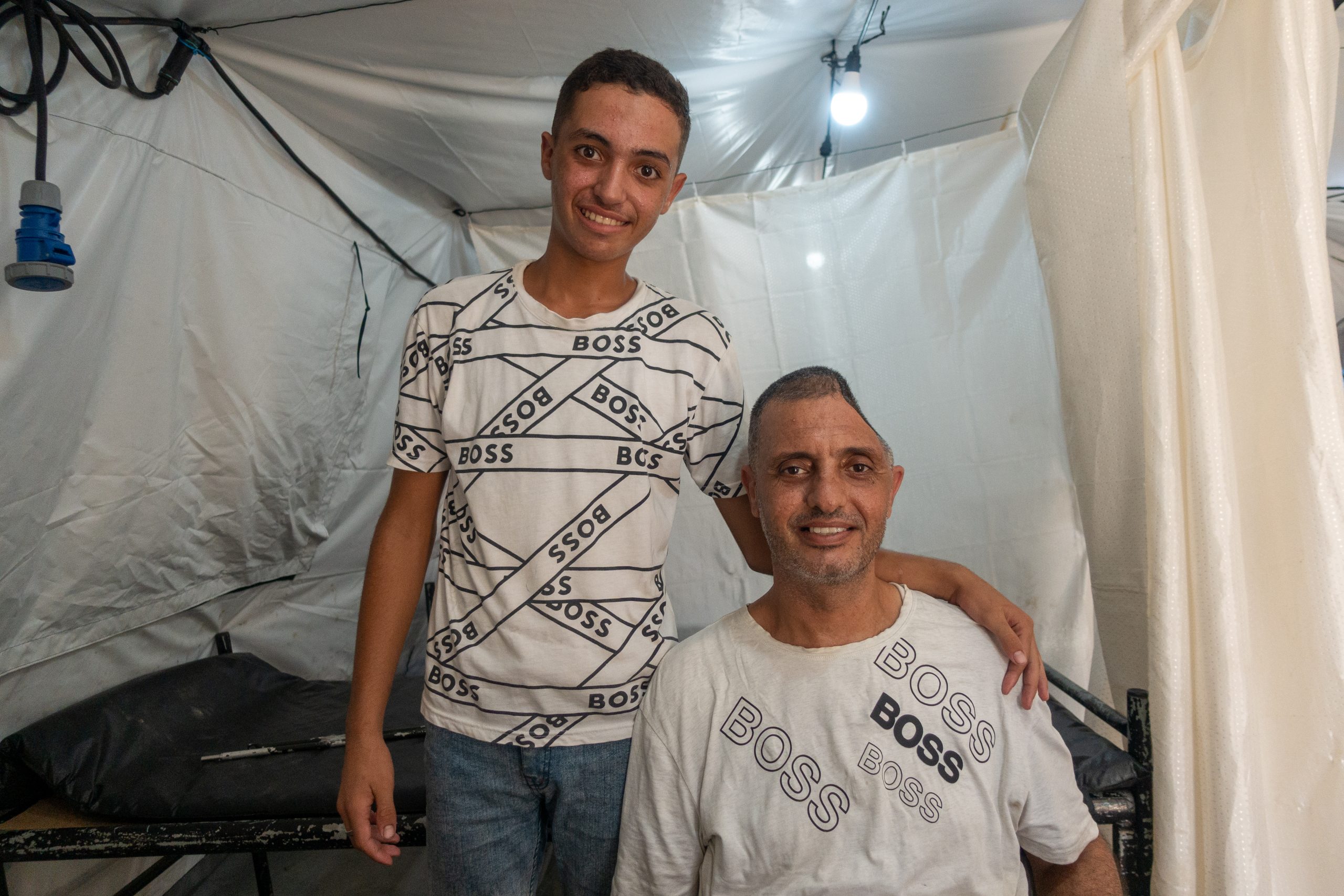
Rghad’s legs lie motionless in her hospital bed, her mother, Linda, sits beside her, occasionally wiping the sweat from her daughter’s forehead. It is hot in the paediatric ward at UK-Med’s field hospital. It is hot in Gaza.
The tall, studious looking 15-year-old was injured by shrapnel from an airstrike whilst she was doing the laundry, at home in the makeshift tent her family now live in, like so many others. Her younger sister was killed in the same strike. This is another tragic story from the UK-Med field hospital here in Al-Mawasi. Another life drastically altered as a consequence of the conflict.
Rghad vividly remembers the moment of the injury. The blast was so powerful, she feared her legs had been blown off. Her father found her, reassured her limbs were intact, and rushed her to the hospital.
She is now paraplegic, unable to move her legs, due to a fracture to her spine. Injuries such as Rghad’s are complex, but in Gaza, during this conflict, they can be life-altering.
“It can take months to realise the full impact of the trauma to the spine and the amount of recovery that is possible”
Rghad has been receiving daily physiotherapy at the field hospital as part of her care. This is something UK-Med initiates early in the recovery process to give patients maximum chance of improvement. The physiotherapy is challenging and sometimes painful, but Rghad knows it is helping her. She smiles ever so slightly as she shows the doctors on the morning ward round a small movement she has recently gained in her right foot. It isn’t much, but it is something to hold onto for the future.
And what does that future look like? It is very hard to say. In the UK, Rghad would have access to an MRI scanner which would allow better assessment of her injury but here in Gaza, with many of the hospitals damaged or destroyed, there is no MRI scanning. Medical evacuation is a possibility but the spaces are so limited.
“She was preparing for the new academic year. She was a studious daughter and very bright. She loved playing with her sister and reading together” her mother says, with eyes full of tears, “she wants to be a doctor”.
Rghad has watched the medics treat her at the field hospital, confirming her long-held goal to be one of them. She admires the professionalism and compassion of the staff as they go about their work.
In the coming months, she will receive more care and physiotherapy for her injury from the staff and specialist teams at the hospital. Her recovery journey is just beginning.






